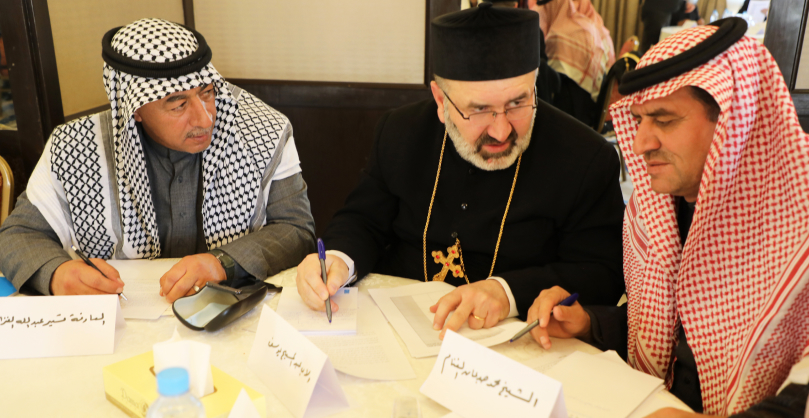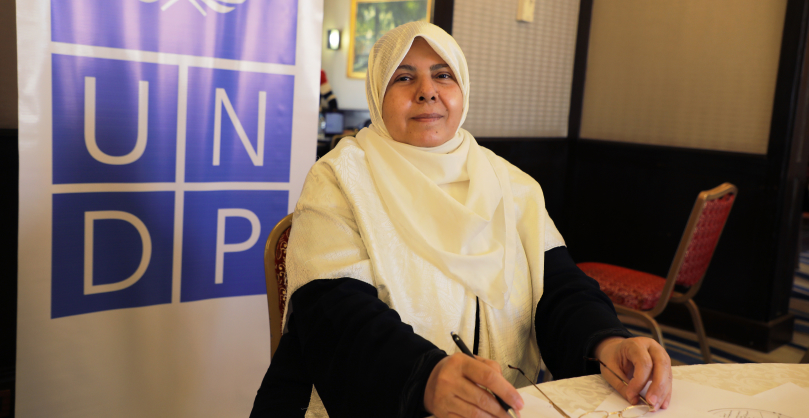Impact by Regions, Countries & Territories
UNDP’s Global Programme supports crisis-affected contexts across all regions to strengthen the rule of law and human rights. In this section, we present five regional overviews, detailing our priorities and approach depending on the context, as well as feature select country and territory results from 2021.
Five contexts from the list (Central African Republic, Democratic Republic of the Congo, Haiti, Mali and Yemen) illustrate the achievements of the Global Focal Point for the Rule of Law (GFP). In peacekeeping missions and transition settings, UNDP’s Global Programme works through the GFP to deliver integrated assistance with our UN partners.
GFP Global Focal Point Highlights
Political
Engagement
The rule of law is essential for sustainable peace and resilient economies, as well as for the prevention or recurrence of conflict. To prevent or address injustice, inequalities or democratic deficits, UNDP works with multiple stakeholders to operate in a way that is consistent with the rule of law and creates opportunities for all individuals to exercise their rights and access justice.
Institution
Building
The importance of strong institutions is more evident than ever as countries and communities respond to disruption, whether because of public health restrictions, climate change or political upheaval. Limitations on public gatherings and travel have revealed the need for institutions that are resilient to disruption.
Community
Security
2021 was a pivotal year that saw various developments affecting peace and security around the world. Civic space continued to shrink and the social contract between states and citizens was increasingly challenged, particularly during and after the response to the COVID-19 pandemic. Facing distressing consequences of climate change, states and communities are forced to manage more cross-border conflicts, triggered by the displacement of people seeking increasingly scarce resources.
Human Rights
Systems
The scope of human rights challenges is widening, from eroded public trust and shrinking civic space to ongoing inequality and human rights impacts in the socio-economic repercussions of the COVID-19 pandemic, and emerging risks in the digital sphere. National human rights institutions (NHRIs), along with other human rights defenders, are facing rising and sophisticated forms of reprisals for carrying out their work.
Access to
Justice
Sustainable Development Goal 16 (Peace, Justice and Strong Institutions) of the 2030 Agenda highlights the importance of access to justice for all for the development of peaceful and inclusive societies. Meaningful access to justice can only be achieved when people know their rights, have the opportunities, agency and capacities to claim them, and have access to independent, inclusive and people-centred justice systems that will respond in a timely, fair and effective manner.
Transitional
Justice
Without justice, there can be no lasting peace. In post-conflict, crisis-affected and fragile contexts, truth-seeking initiatives and reconciliation efforts are essential to bring peace to affected communities. The COVID-19 pandemic has slowed down transitional processes as states prioritized their response to the health crisis and measures to support the economy.
Gender
Justice
In 2021, the continued erosion of democracy and the spread of authoritarian trends in politics in many parts of the world contributed to a backlash against women’s rights. The COVID-19 crisis has reversed some of the hard-won gender parity gains by exacerbating pre-existing inequalities and power imbalances. It has also caused a dramatic increase in sexual and gender-based violence (SGBV). All these challenges have been particularly acute in conflict, fragile and crisis-affected settings.
Innovation
New ideas and new strategies are critical to building sustainable and effective development approaches that really meet people’s needs. Technologies and globalization raise new human rights concerns and threaten the rule of law. Responses to the COVID-19 pandemic continue to limit people’s access to basic services. UNDP connected expertise across the globe to learn and adapt. Creating a culture of curiosity and experimentation, these efforts ensured that local needs and expertise were combined with emerging models to bring strategic thinking to people-centred development goals.

Syria
In Syria, UNDP supported early recovery to address the impact of the ongoing crisis and to make humanitarian needs less acute.
To facilitate resolution of disputes and provide legal services to vulnerable communities, UNDP undertook research to analyse the types of rights-based community mediation that exist in the country and are culturally acceptable. Based on this knowledge, UNDP developed and piloted a model of collaborative dispute resolution (CDR), an out-of-court remedy that expedites social cohesion. In 2021, out of 115 cases submitted, 96 cases were considered involving 305 beneficiaries. In 91 cases, intermediaries were able to resolve all the contested issues.
The service will be expanded in 2022 and made available to more individuals seeking dispute resolution. UNDP increased its support to ensure that people in Syria have access to legal aid and justice services. A number of long-term interventions were launched, and measures taken to ensure their sustainability. UNDP directly implemented its legal aid projects and reached 6,064 individuals (including 4,851 women) who benefitted from legal awareness. Additional 1,476 people (including 885 women) were provided with legal counselling. The topics included personal status law, marriage, housing, land and property (HLP) rights. In 2021, UNDP arranged trainings for 750 law students (48 percent women) from law schools in Homs, Latakia, Hasakeh, Dier Ezzor, Da’raa and Rural Damascus. In the future, these professionals will provide legal services online, facilitate collaborative dispute resolution and engage in other activities. Finally, an online legal aid programme will become operational in the second quarter of 2022 to enable safe access to legal information for vulnerable groups.
UNDP continued to provide various complementary forms of support to the protection of housing, land, and property rights for those displaced or affected by violent conflict across Syria. UNDP developed three guidance notes to equip international community actors, local civil society organizations (CSOs), local leaders and community members with tools and knowledge to verify HLP violations and engage in protection of HLP rights for vulnerable groups, with a special focus on women. The guidance notes, to be published in 2022, cover gender and HLP, mine actions and HLP, and debris management. A number of thematic thought papers on HLP issues were produced in Syria with UNDP’s support. In addition, UNDP supported the translation of 22 relevant HLP laws from Arabic to English and completed a legal trend analysis to map major changes in the legislative frameworks that affected HLP rights both before and during the conflict.


Key Results: Syria
96 out of 115 cases submitted for collaborative dispute resolution were accepted, involving 305 beneficiaries, including 96 women. In 91 cases, intermediaries were able to resolve all the contested issues.
With its legal aid projects, UNDP reached 6,064 individuals (including 4,851 women) who benefitted from legal awareness. An additional 1,476 people (including 885 women) were provided with legal counselling.
Seven workshops were organized for 750 law students (48% women) in law schools in Hasakeh, Dier Ezzor, Da’raa, Rural Damascus.
